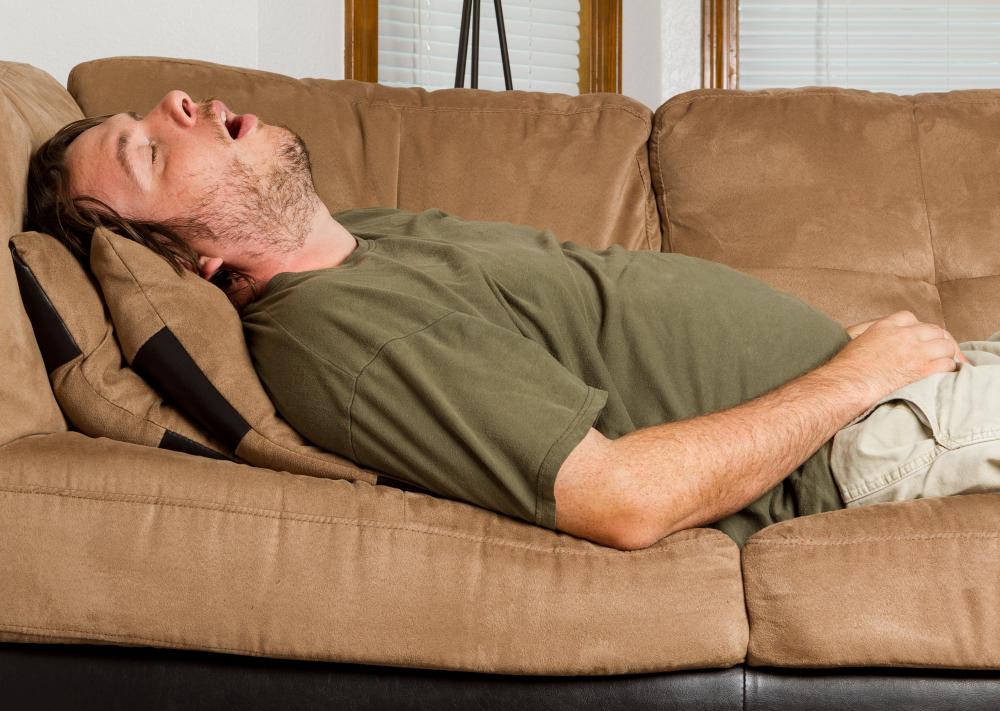At EasyTechJunkie, we're committed to delivering accurate, trustworthy information. Our expert-authored content is rigorously fact-checked and sourced from credible authorities. Discover how we uphold the highest standards in providing you with reliable knowledge.
What is Noise Cancellation?
Noise cancellation technology is a growing field that capitalizes on the combination of disparate technological advancements. The purpose of the technology is to cancel or at least minimize unwanted sounds. Modern lives seem full of all sorts of noise, some of which are dangerous to the ears. In fact, many people, especially those who live and work in cities, have very little quiet time during the day.
This technology aims to remedy the excess noise that people experience. Of course, there already are low-tech solutions to the problem. Ear-plugs and sound dampeners are available, but they are not very convenient nor very efficient. Noise cancellation tries to "block" the sound at the source instead of trying to prevent the sounds from entering the ear canal.

Sounds travel through the air or through liquids in the form of waves, and each of those waves has a particular shape. Noise canceling technologies first rely on small microphones that detect the sounds in a given environment. A digital signal processor determines what sound wave is required to cancel the unwanted sound wave and then it creates that sound and amplifies it through speakers or headphones. One way to understand this is to imagine a "positive" sound and a "negative" sound created at virtually the same time, and these two sounds cancel themselves out thereby bringing the listener closer to silence.

These technologies are in their early stages, and they cannot completely omit sounds, but improvements are consistently being introduced. The hope is that, one day, these technologies can be used to minimize all sorts of unwanted sounds. A lawn mower, hair dryer, or vacuum cleaner might include such a system, thereby greatly reducing the unpleasantly loud sounds.

Noise canceling headphones are already available. The headphones cancel out unwanted ambient sounds allowing the listener to focus solely on the music. The latest versions of these headphones work surprisingly well, and new applications are certainly on the horizon.
AS FEATURED ON:
AS FEATURED ON:













Discussion Comments
I live where there is constant traffic noise. I don't want to wear headphones. How can I use music or other sounds to negate the traffic noise and live a quieter calmer life? The noise is driving me crazy.
Next to my home, there is a *loud* disco.
They are killing me with their big, bassy sound. There are two concrete walls blocking it, but their roof is bare sheet metal. I have a roof next to it.
I plan to cancel that big bass drum with a microphone close to that roof, with speakers towards my house, (I have an 800 watt RMS of bass available). There would be about one meter between the microphone and front of the speakers, and acoustic isolation between the two, to prevent interaction or feedback. To reverse the sound waves, I will reverse the speaker wires.
To compensate for that distance between the mic and speakers, I can use a digital delay (milliseconds) if necessary. Equalisation is available. That matter is a serious one to me, so I hope science and your welcome comments can help me. Does this sound realistic?
I think his technology would be great for vacuum cleaners and wet vacs in noise sensitive ares like hospitals, where people are trying to rest and get well. I deal with complaints every night about how loud the sound is when refinishing floors near patient areas. This would be awesome. Anyone know of a company doing this?
How about tinnitus? ie: measure the frequency in my ear and have an earpiece that counters it. Help!
In this part of the world, hurn speakers are used by Mosques at anytime and anywhere without consedering other people that are not sharing their view. Please, we need this system to have peace in Africa -- especially in Nigeria.
Are there noise cancellation systems that work where a dating or married couple is sharing intimacy in a house with children? The application, of course, would be planned so that *absolutely* no sounds would emanate from the bedroom! I suspect there would be widespread interest in such an application of the technology.
We would love to find out about any systems which would help counter noise outside..ie traffic...as would our neighbors.
No answers to the questions above, I see. I, too, am interested in a system that can help an entire neighborhood.
We have a brand new racetrack as a neighbor who's cars run everyday for 10 months of the year. Some of the spectator races include the Grand Am, ARCA, Mazda Formula X- so you can see they are some of the loudest things going in the racing circuit.
For folks living close (2 miles and closer) to the track, they are forced to sit inside with windows closed, the air conditioner on wonderful, on sunny gorgeous days when they really want to be outdoor in their once peaceful yards.
*Please*! Any answers to these questions, even if it's bad news. If something like this can be developed, then the racing industry as a whole would love it as they can then race all they want and not have lawsuits forcing them to close down. Lots of money to be made here if something like this can be implemented.
Assume you are listening to music in a somewhat noisy environment using noise cancelling headphones to eliminate the outside sounds. Since the headphones are eliminating certain sounds which are truly frequencies, is not the music also being affected in those frequencies?
In an extreme case, if you fed the music to both a set of speakers and to a noise cancelling headset, the headset would cancel out the sound hitting them from the speakers and you would then hear nothing, unless you could overboost the volume only to the headset. Therefore any outside sound would diminish the pure music reproduction in those frequencies as heard through the noise cancelling headset. Discussion?
Very interesting technology... Does anyone think it could be implemented in a room/pod?
Thanks
Surely if this is going to work at an individual house level, it is necessary to measure the 'incoming' noise profile at the house in question and produce the 'negative' anti-noise locally?
I would think the biggest problem here is to achieve this processing quickly enough and to project the ant-noise sound so that it has a broad 'sweet spot'.
Hi Jsweet, you might be on to something. Here are two additional thoughts...
* If the issue is an inheret delay, could we somehow tap into a harmonic opposite of a sound at a higher frequency
* Create a profile called train that has the basic sound of a train. Then install it at the desired locations. Even though it's not perfect cancellation it would certainly serve to dampen the sound.
I do have two counter arguments, especially if you you are looking for pure cancellation. The first is minor: If you record the sound of a train in one place it may not sound the same as it will further down the track. The net effect I assume would be a dampening effect, and I think that would be effective.
The second, in terms of a train and to some degree traffic is more significant: A train, and highway traffic for that matter create a significant amount of seismic noise that in turns vibrates nearby structures and causes new sounds.
In business terms this criticism might serve you well because you can sell a better solution customized for every house than you can sell in a one size fits all solution. You can also sell ongoing support for keeping the quality of dampening consisitant as sound conditions change.
Larry Boeldt
It occurred to me that noise cancellation technology relies on the ability to generate a complimentary signal where its output would be 180 degrees out of phase with the incoming signal. Virtually impossible in a single unit due to the delays inherent in the circuitry. Would it be possible to design a system which would pick up the sound (a train), transmit it to a receiver some distance away, and have that receiver overlay the complimentary signals in real time to cancel the noise at the end. I see this as a way to silence unwanted noise for entire neighborhoods. A main station which receives the sound, re-transmits the complimentary signal at a speed greater than the speed of sound, and each remote location (house, room, yard, etc...) has a receiver which syncs up the signals and generates the complimentary sound to cancel the noise. Is there a company doing this at this time? Shall I get a patent?!
Are any systems being developed which can help counter noise outdoors? And if so who by?
Post your comments